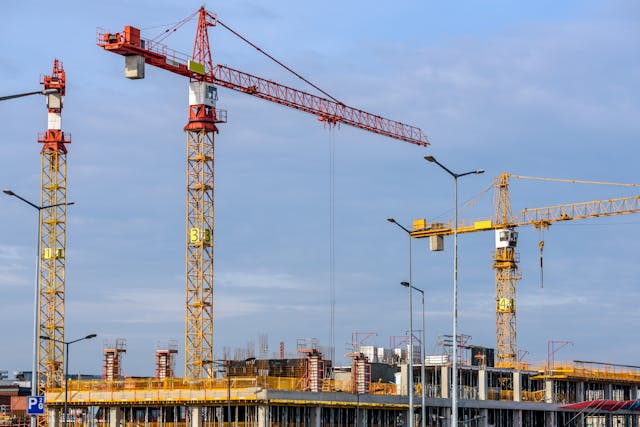The Backbone of Society: Exploring the Role of Civil Engineering
In the fabric of our bustling modern society, civil engineering stands as an unsung hero, weaving together the threads of infrastructure that support our daily lives. While the glimmering skyscrapers, sprawling bridges, and labyrinthine road networks capture our attention, it's the unseen hand of civil engineers that brings these marvels into existence.
Their work is the silent force that shapes our landscapes and underpins the functionality of our urban environments.
But what precisely is civil engineering, and what role does it fulfill in our world? At its essence, civil engineering is the art and science of designing, constructing, and maintaining the physical infrastructure that forms the backbone of society. It's the discipline that transforms abstract concepts into tangible structures, bridging the gap between imagination and reality.
Civil engineers are the architects of our urban landscapes, the visionaries who conceive grand designs, and the masterminds who navigate the intricate complexities of implementation. They blend creativity with technical expertise, balancing aesthetic considerations with practical functionality to create infrastructure that not only dazzles the eye but also serves the needs of communities.
What is Civil Engineering?
Civil engineering is the branch of engineering concerned with the design, construction, and maintenance of the built environment, including structures, transportation systems, water resources, and more.
It encompasses a wide array of disciplines, from structural engineering and transportation engineering to environmental engineering and geotechnical engineering. Essentially, civil engineers are the masterminds behind the physical infrastructure that supports modern civilization.
What Civil Engineers Do
Civil engineers are tasked with a diverse range of responsibilities aimed at ensuring the safety, functionality, and sustainability of infrastructure projects. They collaborate with architects, urban planners, government agencies, and construction teams to bring projects from conception to reality.
One of the primary roles of civil engineers is to design and plan infrastructure projects. Whether it's designing a skyscraper that can withstand seismic activity or developing a transportation network to alleviate traffic congestion, civil engineers use their expertise to create innovative solutions to complex problems.
But civil engineering is not just about design; it's also about implementation. Civil engineers oversee the construction phase of projects, ensuring that plans are executed accurately and efficiently. They collaborate with construction teams to address challenges that arise during the building process, making adjustments as needed to ensure the project stays on track.
Furthermore, civil engineers play a crucial role in maintaining and upgrading existing infrastructure. They conduct inspections, assess structural integrity, and recommend repairs or improvements to ensure that infrastructure remains safe and functional for years to come.
What is Civil Engineering About?
At its essence, civil engineering embodies the relentless pursuit of betterment for society at large. It's not merely about erecting structures or laying down roads; it's about weaving a tapestry of connectivity, resilience, and progress that uplifts communities worldwide.
Civil engineers are the architects of change, driven by a profound commitment to enhancing the well-being of society. They harness the power of science, technology, and creativity to conceive, design, and implement infrastructure solutions that transcend mere functionality—they enrich lives.
From bustling urban centers to remote rural landscapes, civil engineering is a versatile discipline that adapts to the unique needs and challenges of diverse environments.
Whether it's ensuring access to clean water, optimizing transportation networks, or fortifying communities against natural disasters, civil engineers are the unsung heroes working tirelessly behind the scenes to safeguard our collective future.
But civil engineering is about more than just physical structures; it's about fostering harmony between humanity and the environment. Civil engineers are stewards of the planet, integrating principles of sustainability and environmental stewardship into every project.
They strive to minimize ecological impact, conserve natural resources, and leave a positive legacy for generations to come.
What Does a Civil Engineer Build?
Civil engineers are the master builders of our civilization, crafting the very fabric of our modern world. They are the architects of progress, translating vision into reality through the creation of essential infrastructure that sustains and empowers communities.
At the heart of their craft lies the art of construction—whether it's erecting towering skyscrapers that pierce the skyline or laying down intricate networks of roads and highways that facilitate the flow of commerce and connectivity.
From the foundations upon which our cities stand to the intricate systems that keep them running smoothly, civil engineers build the structural backbone upon which society thrives.
But their contributions extend far beyond mere physical structures. Civil engineers are the guardians of public safety and well-being, designing resilient dams and levees to protect against the ravages of nature, and creating sustainable water and sanitation systems to ensure access to clean drinking water for all.
Their work is a testament to human ingenuity and collaboration—a harmonious blend of science, technology, and creativity that seeks to address the evolving needs and challenges of our ever-changing world. In the hands of civil engineers, concrete and steel become instruments of progress, shaping a brighter, more resilient future for generations to come.
Conclusion
In the grand tapestry of human civilization, civil engineering emerges as the sturdy backbone that upholds our collective progress and prosperity. Beyond the gleaming facades of modern marvels and the smoothly paved roads that guide our way, lies the silent but formidable force of civil engineers. Their dedication, expertise, and unwavering commitment to excellence lay the foundation upon which our societies thrive.
As we navigate the complexities of the modern world, civil engineering stands as a beacon of innovation and sustainability. It's not just about erecting structures or laying down roads; it's about shaping the very fabric of our communities, fostering connectivity, and enhancing quality of life for all.
Behind every towering skyscraper, bustling airport, or intricate network of transportation lies the ingenuity and foresight of civil engineers. They are the silent architects who translate vision into reality, blending artistry with scientific precision to craft structures that stand the test of time.

